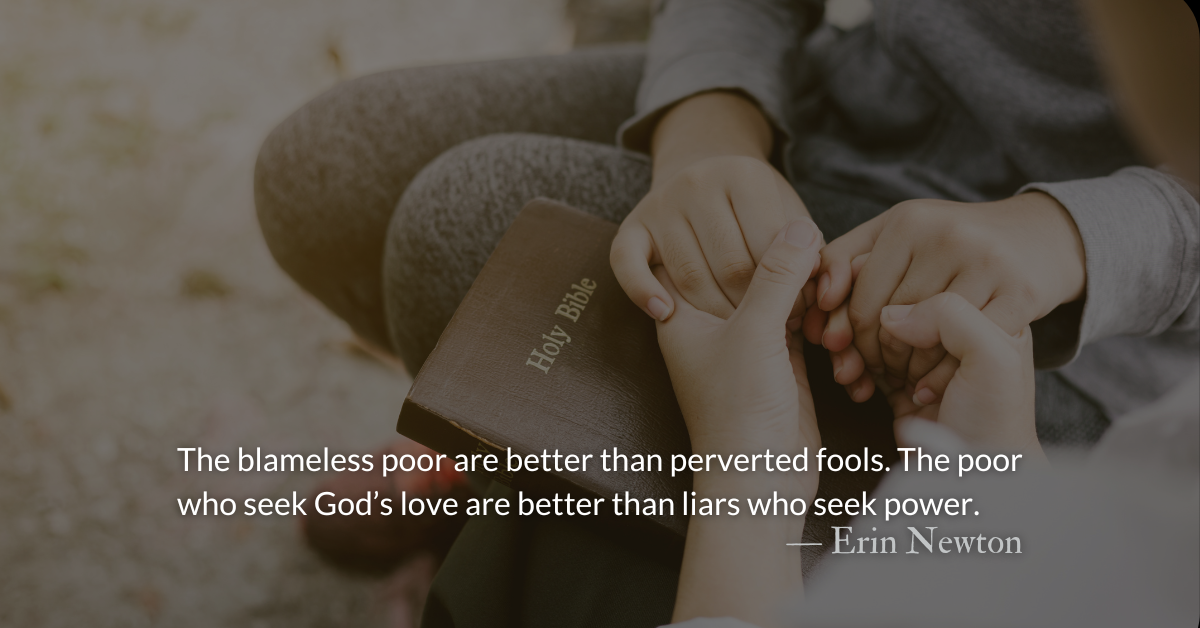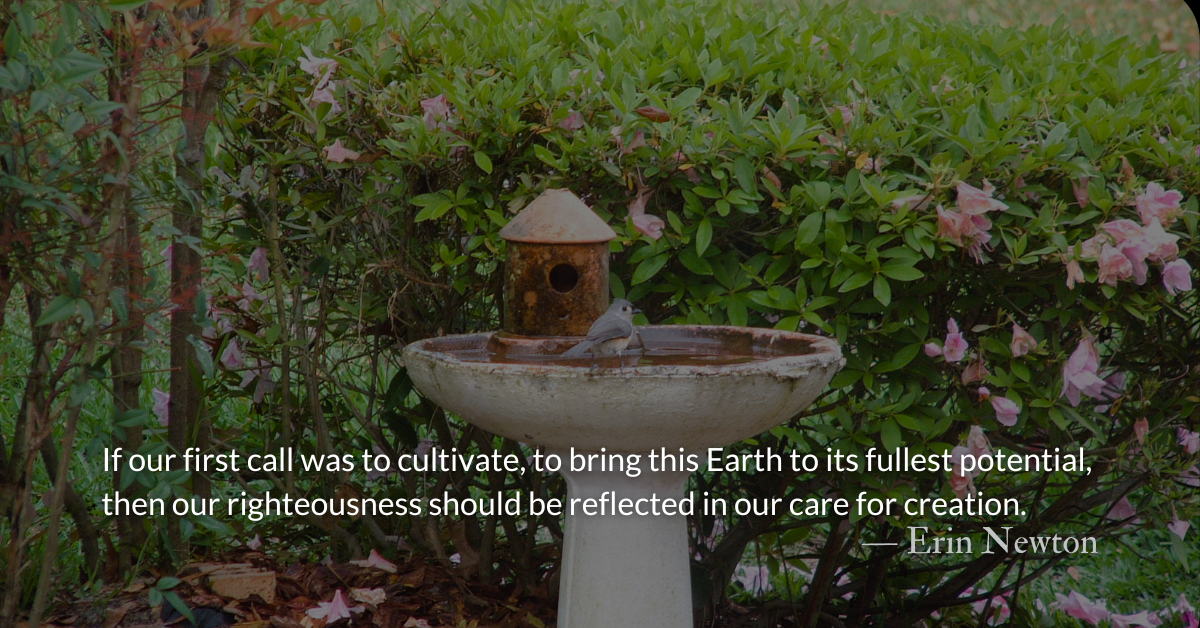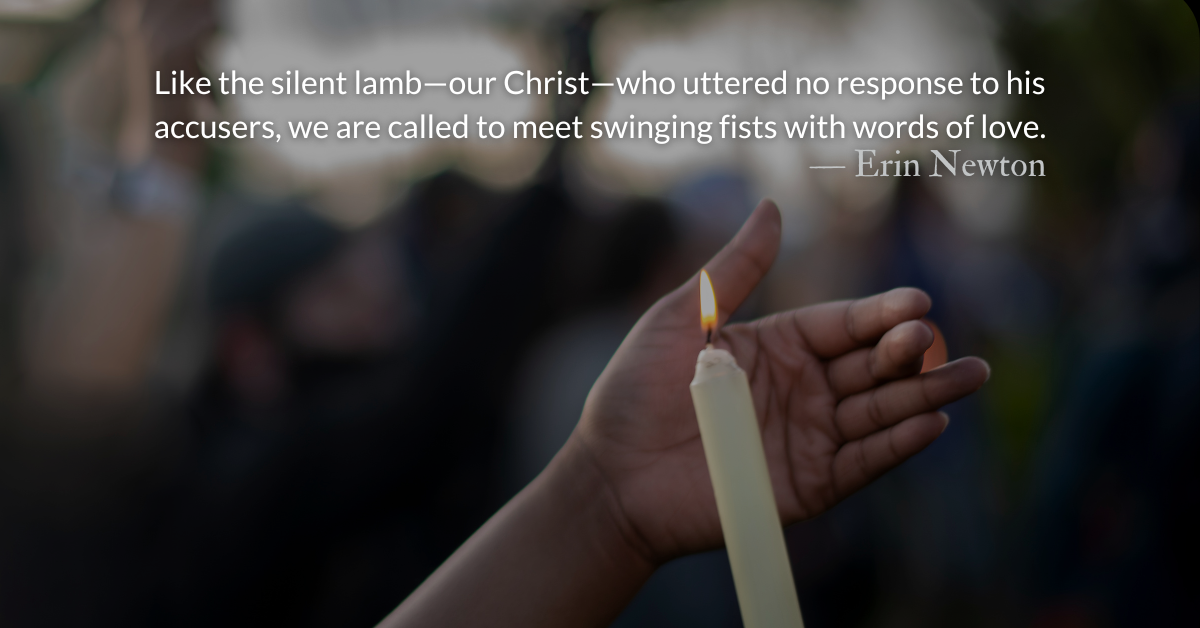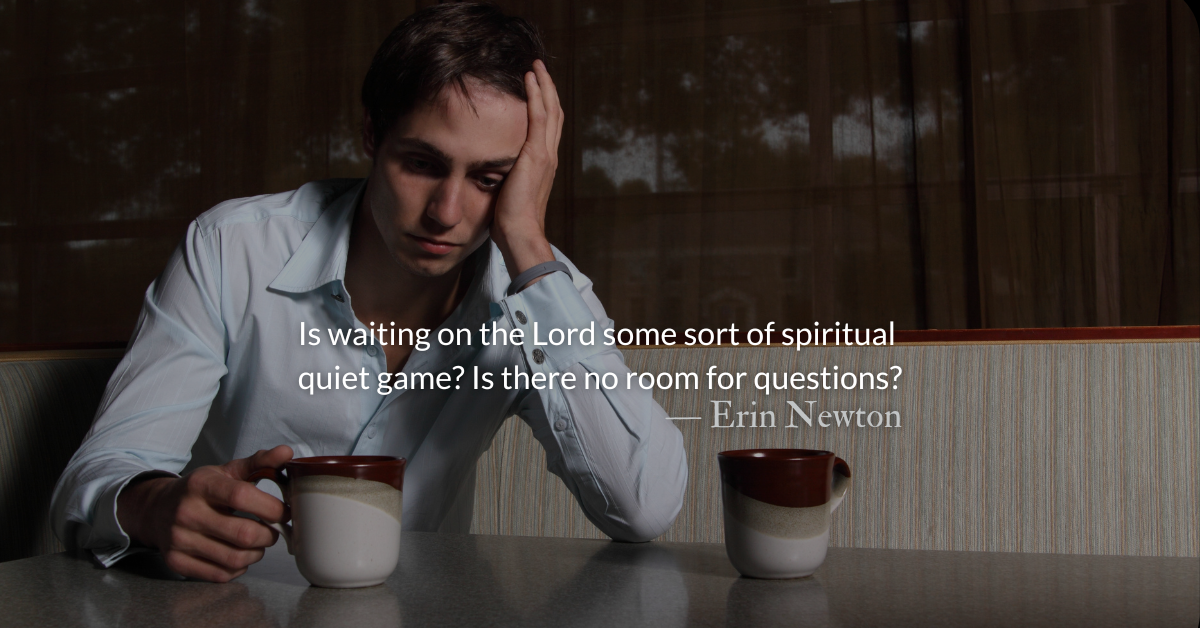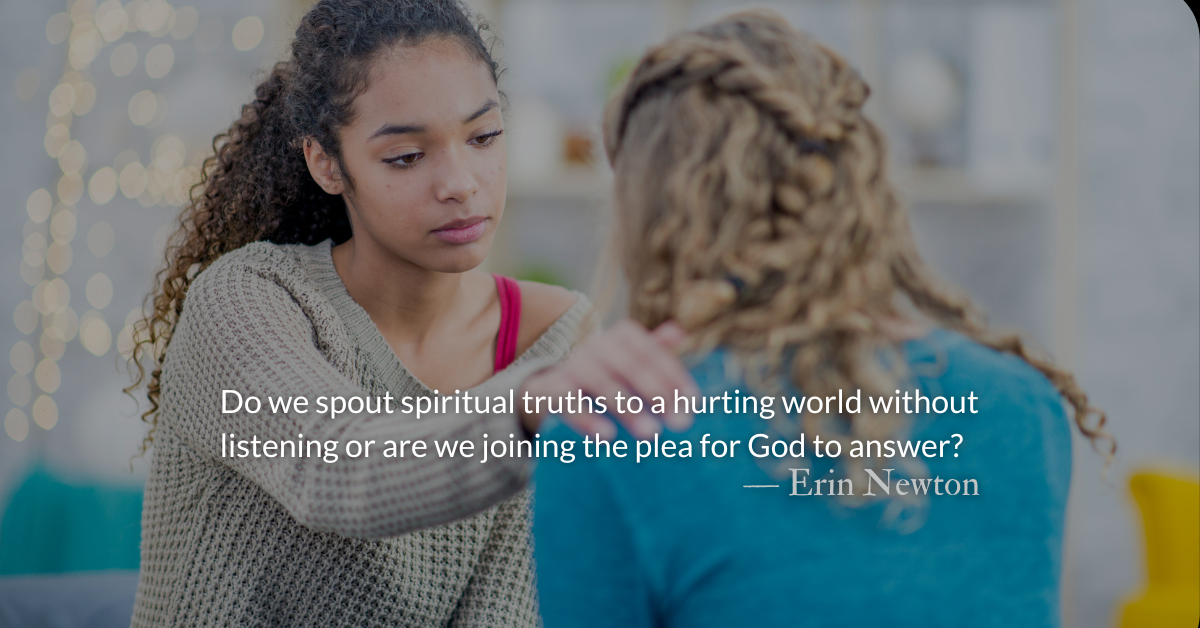Scripture Focus: Proverbs 19:1, 4, 7, 22
1 Better the poor whose walk is blameless
than a fool whose lips are perverse.
4 Wealth attracts many friends,
but even the closest friend of the poor person deserts them.
7 The poor are shunned by all their relatives—
how much more do their friends avoid them!
Though the poor pursue them with pleading,
they are nowhere to be found.
22 What a person desires is unfailing love;
better to be poor than a liar.
Reflection: Proverbial Economics
By Erin Newton
Proverbs seems to blame the poor for their situation—hunger is caused by one’s laziness or foolishness (Proverbs 19.15, 24). The statements read as harsh indictments to those struggling to survive.
The ancient Israelites were encouraged to avoid poverty or debt. The economic system did not have regulations on lending; a faulty decision could bring a family to ruin. Kinsmen redeemers were an opportunity to provide freedom from one’s situation (see Ruth), but other family members were typically in a similar scenario and unable to bring redemption to their brothers and sisters.
One skill we must learn when reading the Bible—especially the book of Proverbs—is to avoid reading it anachronistically. That means we must steer clear of forcing our modern systems into the ancient text. I find this most pertinent when reading about economics. Our social systems, finances, economies, and class structures are different from ancient Israel.
We must also learn to read the Bible as a whole, seeking to see the trajectory of a topic from Genesis to Revelation. We might read verses that blame the poor for their situation but that is not a prescriptive universal statement for all time.
There is also a unique feature when speaking of the poor in Proverbs. Alongside these blunt statements about the status of the poor are compassionate and honoring statements.
Twice in this chapter wisdom places the poor above others. One’s character is severed from his or her financial status. The blameless poor are better than perverted fools. The poor who seek God’s love are better than liars who seek power.
But the poor are often neglected and unnoticed by their peers. It is no surprise when we read, “Wealth attracts many friends.” People want to be friends with the wealthy in hopes of gaining wealth by proximity or receiving some benefit from the association.
In contrast, “the closest friend of the poor person deserts them.” No financial gain or personal benefit is assumed when befriending the poor. This can only be true if our priorities revolve around ourselves.
Proverbs are not the final words on wealth and poverty. Reading holistically, some proverbs move the conversation forward by highlighting the sharing of wealth: “Whoever is kind to the poor lends to the Lord” (Proverbs 19.17), and “the righteous give without sparing” (Proverbs 21.26).Jesus said rightly that we would always have the poor among us. He calls us to give, come, and follow him (Luke 18.22).
Divine Hours Prayer: The Call to Prayer
Love the Lord, all you who worship him; the Lord protects the faithful, but repays to the full those who act haughtily. — Psalm 31.23
– From The Divine Hours: Prayers for Summertime by Phyllis Tickle.
Today’s Readings
Proverbs 19 (Listen 3:09)
Read more about Would You Rather Proverbs?
No amount of wealth, power, or ease is worth abandoning the way of Jesus. These are the very things Satan tempted Jesus with.
Read more about Supporting Our Work
Our work needs the support of donors like you. Please consider supporting our ad-free content that brings biblical devotionals to inboxes across the world.

